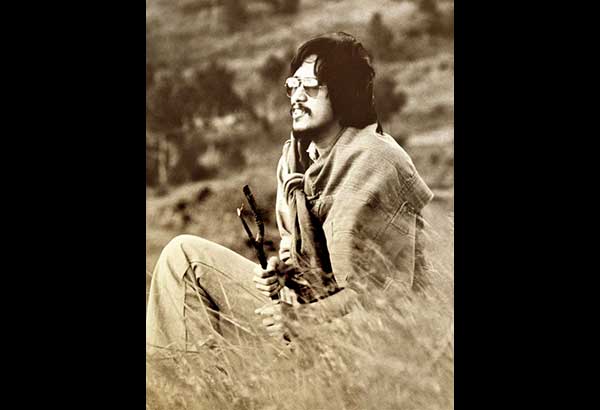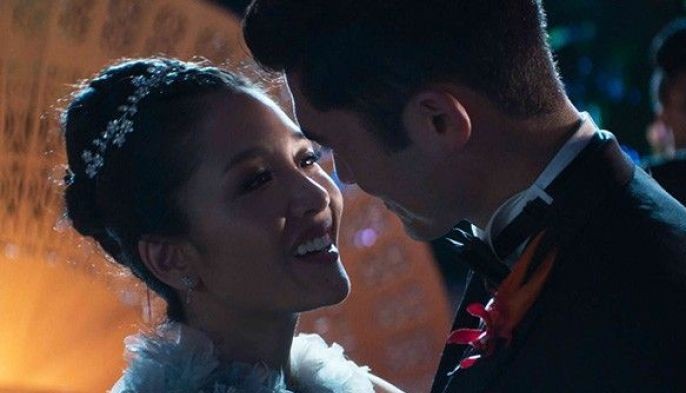Bimboy’s laughter


Bimboy Peñaranda on a grassy knoll overlooking Lake Danum off Sagada in 1976.
It’s his laughter I’ll miss most. It wasn’t loud, but rollicking in its own way, jovially exuberant. Like the gurgling of a brook, if I may be permitted a cliché.
Friends who knew Bimboy Peñaranda share a common modifier: a gentle soul, a gentle poet. The quietude in his poetry bears that out. His stories and essays are similarly about being pacific. In speech and demeanor, as an old soul bathed in gracious wisdom, no doubt he was attuned to a universe void of an angry word.
On Sept. 21, he wrote “Like a Poem,” and posted it on FB. Here’s the last of three simple stanzas:
“Feeling like a poem today/ Not as unexpected as people say/ Who cares about turning into vapor/ When clouds can absorb you as a favor/ So journey far and never feel alone/ Manage to get lost in someone else’s zone./ Last night we found each other at home.”
The next day, at that home in Las Piñas, Bimboy was felled by a heart attack. He expired at a nearby hospital a little past midnight, on Sept. 23. He was 64.
Eldest daughter Saira, my godchild, sent immediate word. We spoke on the phone. Still stunned and disbelieving, I rang up her mother Jo, comadre and fellow Piscean like Bimboy. We wound up sobbing together.
All the memories of deep friendship surged like a flood. “Gosh,” she said, “he didn’t get to say goodbye.” I assured her that he did, in his last poem. Everyone who read it agreed that Jose Victor Peñaranda had bade farewell in a unique yet fitting way.
Accounts came of how he had been spotted at the protest activity in UP on Sept. 21. Others said it was at the rally in Luneta. But it couldn’t have been, as he had been preparing to journey deeper home.
Grace Bañez claimed to have seen him at the Nick Joaquin Literary Awards prize-giving at B Hotel in QC on Sept. 13. Impossible, I said, as he would have spoken to Marne Kilates, Jimmy Abad, Susan Lara and me. And Graphic magazine literary editor Alma Anonas-Carpio would’ve announced his presence publicly, since Bimboy had been named NJLA Poet of the Year in 2015. Grace and I finally agreed that it must been what we call “paglalayag.” It was just like Bimboy to exercise his peripatetic spirit.
The last time our circle of friends had engaged with Bimboy’s actual presence was on Aug. 31 at the UP book launch of BLOODLUST: Philippine Protest Poetry (From Marcos to Duterte), to which he had contributed four poems. We repaired to University Hostel for drinks and pulutan. It turned out to be the last time I’d get to sit right beside my bestie of over four decades.
Last Tuesday, Sept. 26, fellow poet Marjorie Evasco, who had been looking forward to meet up with Bimboy in Bohol next month for a project, organized “Sunset Memorial: A Poetry & Music Tribute” for the fourth night of the wake. It had two parts of readings by Bimboy’s friends, mostly of his poems but also some of our own, as well as excerpts from the numerous written reminiscences upon his passing.
For Part One, the readers included Marj, Bro. Hansel Mapayo, Grace Monte de Ramos, Susan Lara (who read from eulogies by Noel Pingoy, John Allenegui and Gina Apostol), RayVi Sunico (including his own recent poem as tribute), Beni Santos, Mike Coroza (who sang and read), Michael Villas, Harold Mercurio and Daryll Delgado. The last three read Bimboy’s poems in Waray, with his cousin Daryll also reading a translation in English produced at the last minute by another cousin, NY-based Gina Apostol.
After a break for Mass, Part Two included readings by Marne Kilates, Alma Anonas-Carpio (with her own poem as tribute), Cesar Aljama, Sylvia Mayuga, Karina Bolasco, Dinah Roma and Jimmy Abad.
I read “Like a Poem,” after which I inserted a freshly minted one by Rayboy Pandan, “Happy Farewell,” written for his 1984 Dumaguete writers’ workshop batchmate, and which I had picked up from FB on the drive to the wake that night. I couldn’t help but add a quatrain in Filipino that had always been classic lines from Bimboy, from a short story published in ERMITA magazine, where he served as associate editor in 1976. I first had to verify the accuracy of the lines with our ERMITA colleague Cesar Ruiz Aquino of Dumaguete.
“Ang pag-ibig ko sa iyo/ Ay isang eroplanong kawayan:/ Magaan, humuhuni,/ Nakalutang sa bughaw.”
Winding up the readings were members of the family: Jorge Aruta, brother-in-law Nonoy Colayco, brother Claro Peñaranda who had flown home from Europe just in time to catch that evening’s tribute, son Nikos, and sister Tina Colayco.
Bimboy belonged to an exemplary clan that hails from Barugo, Leyte — which has produced an extraordinary number of poets, writers and journalists. His own father was a journalist. I recall visiting Bimboy and Jo at their place on Extra St. in Fourth Estate Village off Sucat in the late ’70s. Before that, he had grown up on Isla de Convalesencia on the river Pasig, where he was born.
Sawi Aquino and I had found that remarkable, that our younger friend had been born on an eyot, an island on a river. Another unusual tidbit was that as a teen-ager, Bimboy had somehow found passage on an ocean steamer, and wrote about it in an early travel essay, “Slow Boat to Japan.”
His rippling (not roaring) laughter enhanced our trips together to Baguio and Sagada in the ’70s, with Boy Yuchengco, Boy Yñiguez and Santi Bose, then to Luisiana, Majayjay and Mt. Banahaw in Quezon in the ’80s. That same quality of calm humor served us all in good stead when we put out The Evening Paper in the mid-’90s.
It came as no surprise that when he became a full-fledged development worker, years-long assignments from international agencies took him and Jo to Macedonia thence Bhutan.
He authored three poetry collections: Voyage in Dry Season (1996), Pilgrim in Transit, and Lucid Lighting (UST Publishing), the last also with prose works from his sojourn in Bhutan.
Developmental and environmental advocacy, as well as writers’ workshops also had him frequenting Samar, Leyte, Dumaguete, and various areas in Mindanao, including Marawi.
He became a highly-regarded discussion leader and speaker with the Theosophical Society of the Philippines — a natural progression for a spiritually evolved traveler. All throughout his life — as the instant tributes would manifest — Bimboy had proven with his unfailing kindness that he was a spirit guide of the first water.
In a post-Haiyan paper titled “Summoning the Spiritual in Times of Disaster,” he wrote: “Kindness and service are the distinct expressions of spirituality in everyday life. In the context of disasters, to be spiritual is to bear witness to tragedy with full awareness, to gain precious insight, and to perform a solemn duty as writer.”
His children will carry on with his keen appreciation of the intersection between science and nature. Saira is a UPLB graduate in Forestry. Siday is a veterinarian. Nikos is a climatologist just back from four years of studies in Australia, and now works with the Pag-asa weather bureau.
When we hear soft thunder in the distance, we will now recognize it as the sage laughter of the dearest poet-pilgrim we ever loved.



















